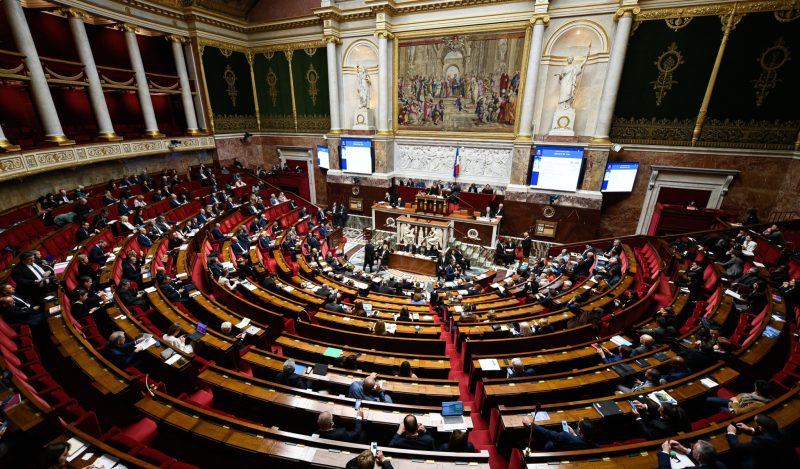Over the summer, I received an email from “your” Faculty Secretary—as the most pro-administration office-holder in recent memory likes to refer to herself in notes to her colleagues—inviting me to participate in the branding sessions being run by a consultant recently hired by the college.
So, it has finally come to this, I thought. We, a group of extravagantly trained thinkers have given up the pretense that rigorously honed ideas and arguments matter, and have finally surrendered to the logic of what Zygmunt Bauman presciently called “liquid modernity,” a space wherein the fabrication of would-be images and sensations regularly trumps the joys and lessons of primary experience.
I am not naive about the often calculated and calculating reality of self-presentation, nor the enormous role it has played in human affairs throughout history. There has been, and always will be, a gap in what we believe ourselves to more or less be in essence and the various faces we present to the world.
What is troubling today is how the balance in this ever-present dichotomy now seems to lean inordinately toward the arts of imposture, and a situation in which the always tensed cords linking the essential and the portrayable elements of life have begun to snap.
Not too long ago, the cultivation of a wholesale disjunction between one’s inner thoughts and outer presentation was broadly seen as pathological. Now, however, the ability to propagate free-floating images of the self (and with it one’s chosen causes) is now presented as proof of good sense and high intelligence.
Just think about the millions of young people who now spend infinitely more time curating their online personas than actually finding out who they are and what they believe in through face-to-face dialogue.
Branding is derived from the middle English term to “impress or burn a mark upon with a hot iron, to cauterize; to stigmatize,” a practice with clearly painful and violative intent when visited, as it frequently was in the past, on fellow human beings.
When we cauterize human flesh we are, in effect, canceling its relationship to the rest of the organism of which it forms a part, setting in motion a process that mocks the promise of the redeeming “true symbol” which, according to Joseph Campbell, is “always a token that restores, one way or another, some kind of broken unit.”
What do we lose when this disjunction between parts and wholes becomes normalized in a culture, when our minds are constantly being “seared” by unidimensional representations of inherently complex realities? It would seem to be a question worth exploring.
While political branding has always been with us, it appears to have taken a quantum leap in audacity and intensity in the first decade of the 21st century. First came the massive “with us or against us” propaganda campaign in favor of the destruction of Iraq.
Then came the Obama campaign for the presidency, wherein the long-standing tradition of flogging an attractive set of images while limiting the issuance of concrete policy commitments, gave way to the practice of concentrating almost exclusively on the former at the expense of the latter.
Back then, I remember having conversation after conversation with well-educated Democratic voters confident that Obama was going to be a wonderful progressive president, people who, when pressed, generally could not point to any concrete policy proposals that led them to this conclusion.
And when it was pointed out to them that he had made a number of moves in his pre-political career and his brief time in the Senate that marked him as a rather reliable supporter of traditional and generally quite conservative centers of financial and military power, most would not hear of it.
And the minority that would engage with such challenges were quick to explain, in the absence of any documented proof (remember Obama as a player of three-dimensional chess?) that if he was saying and doing these counterintuitive things, it was to get elected, and that all would change for the progressive good when he finally got into office.
Simply a case of a war-fatigued electorate getting ahead of itself? That no doubt was a factor.
But given what we now know about the important role that the “Nudge Advocate General” Cass Sunstein played in the Obama administration, the nearly seamless partnership that the 44th President’s would enjoy with spymaster and serial scenographer of psychological operations John Brennan, and the outsized role that behavioral insight teams now play at all administrative levels of our society, it seems licit to ask if something much more planned and systematic might have been taking place.
When we take the time to listen carefully to those closest to power (who in my limited experience with them often have an uncanny way of betraying their true ideas and intentions) it becomes clear that they have been thinking about how to promote these patterns of cognitive decoupling in the general population for a long time.
When in a famous 2004 interview Karl Rove told Ron Susskind about the Bush Administration’s ability to create its “own realities”—that is, virtual facts that would always outpace the ability of the journalists and others in what he called the “reality-based community” to deactivate them in the minds of the public—he was copping to doing precisely this.
Rahm Emanuel demonstrated a similar candor in 2010 when asked to comment on the growing liberal discontent with President Obama’s serial abandonment of his campaign promises to them he said: “They like the president, and that’s all that counts,” by which it seems he really meant something like this.
“We have invested a lot of time and money in creating an image of the president that appeals to virtue-seeking liberals. Our polling tells us that when forced to choose between that carefully constructed image of Obama and what their lying eyes are telling them about the true nature of his policies, most will choose the former. And, of course, should this not work, we can always double down on the talk about how the Republicans are that much worse.”
It seems increasingly obvious that our political operatives, and the Deep State/Corporate coalition for whom they mostly work, now trust quite deeply in their ability to use branding to induce what social psychologist Albert Bandura suggests is the selective activation and deactivation of the public’s moral instincts.
He finds the second outcome, which he terms “moral disengagement” to be especially troubling as it can open the door to the widespread dehumanization of those who refuse to abandon their personal agency in the midst of the pressure to conform to the particular, usually elite-inspired, groupthink of the moment.
Here, according to Bandura are some of the hallmarks of the phenomenon.
The moral disengagement may center on the cognitive restructuring of inhumane conduct into a benign or worthy one by moral justification, sanitizing language, and advantageous comparison; disavowal of a sense of personal agency by diffusion or displacement of responsibility; disregarding or minimizing the injurious effects of one ‘s actions; and attribution of blame to, and dehumanization of those who are victimized. Many inhumanities operate through a supportive network of legitimate enterprises run by otherwise considerate people who contribute to destructive activities by disconnected subdivision of functions and diffusion of responsibility. Given the many mechanisms for disengaging moral control, civilized life requires, in addition to humane personal standards, safeguards built into social systems that uphold compassionate behavior and renounce cruelty.
Could there be a better description of the comportment over the last two years of the —it’s got to be said— overwhelmingly “liberal” and well-credentialed group of Covid maximalists in our midst?
Yes, it was the Bush administration, working off what it learned about media management from the Panama invasion and Gulf War I, that first put Karl Rove’s reality creation machine into full gear.
But it has been the so-called progressives who have brought the politics of branding—with its open assaults on those calling for integrative analysis and problem-solving—to new heights, first through its cover-the-eyes denial of Obama’s abject corporatism and war-mongering, then its fact-free pursuit of the Russiagate scandal and now, most consequentially perhaps, its consistently reality-denying approach to Covid.
Here we have a population cohort, whose sense of social and political identity is very much bound up in the idea that they are more far-seeing and more moral than those they oppose in social debates, blithely signing off on mass house arrests, the surefire inducement of cognitive and developmental delays in millions of children and, most gravely, the flat out abrogation of the concept of bodily sovereignty. And all in the absence of solid empirical evidence for the efficacy of the policies they have imposed and/or endorsed.
It is not hyperbole to say that 20-30% of the US population, comprising a healthy percentage of its most highly credentialed citizens, now live in a perpetual fugue state wherein following directives from “properly branded” intellectual authorities, and reflexively ridiculing those that the same authorities cursorily signal as aberrant. This mental pattern consistently overwhelms any desire on their part to engage in an autonomous review of available data.
The Example of Spain
This is not the first time that an imperial elite, obsessed with the iconography of its own omnipotence has mentally closed in upon itself in this way.
In the middle of the 16th century Spain’s political, economic and cultural power was immense, and in many ways comparable to that of the US in the three decades immediately following World War II. Nothing taking place in an arc that went from Chile to Vienna passing through Peru, Colombia, Mexico, the Caribbean, the Low Countries, much of central Europe, and most of the Italian Peninsula was immune to its power.
The Vatican, which was still the center of religious life for most of the citizens in these places, never undertook any major campaign or change without first considering how it would be viewed at the Escorial, the built-to-impress seat of Spanish kings outside of Madrid.
And yet, at the end of the first quarter of the 17th century, it was clear the Spanish moment had passed. Yes, there were—it is worth noting—expensive and ill-chosen wars and disastrous economic policies that shunned domestic investment in favor of what would today call outsourcing to foreign manufacturers and payments to foreign creditors. But perhaps more importantly, there was the generalized failure of the country’s elites to recognize and adapt to the changing realities of the world.
As England and the Low Countries forged ahead in the development of the scientific method and the principles of modern capitalism, thereby creating an imperative for a rearrangement of the European concert of nations, Spain first scoffed at their new approaches and then sought to put them back in their rightful places though expensive and wasteful wars.
What Spain’s elites, with a few exceptions, seldom if ever did was to stop and ask hard questions about the precepts under which they were doing business, and what, if anything those that were gaining on them were doing that might be worth imitating. On the contrary,they tended to enact ever more strict censorship and orchestrated campaigns of disdain for foreigners and their ideas.
The rest of the story is not pretty and revolves during the next three centuries or so around progressive impoverishment, repeated civil wars and a retreat into the status of a cultural and political backwater.
And yet so great was its continuing hubris and delusional belief in its status as one of the great poles of world culture in the 1950s and 1960s that the country’s leadership proudly banned books by seminal thinkers of contemporary thought and referred to itself as unashamedly and unironically as the “Sentinel of Western Culture.”
Will this be our fate?
For the sake of my children, I certainly hope not.
If we are to avoid it, we must, I think, remind ourselves of Campbell’s idea of “true symbols” and how, above all, they help us repair what has been broken. While we must always frontally rebut the falsehoods that the branded idea-makers rain down upon us, we cannot and should not allow ourselves to get too caught up in the vortex of their self-referential fantasies about self and others.
To do so would be to take energy away from our prime of job of engendering psychological and spiritual repair which, as thinkers like Matthew Crawford and Josep Maria Esquirol have argued, and as Sinead Murphy reminded us in a beautiful essay published yesterday here at Brownstone, can only come from forging sturdy associative bonds.
Bonds created, not on the basis of top-down directives, but rather from a frank estimation of our individual states of fragility, and our knowledge that the only thing that has ever saved us from that state of being are good-faith, eye-to-eye meetings across dinner tables, workbenches, scrapbooking groups, or wherever else people gather in the hope of connecting and building or renewing something together.
Published under a Creative Commons Attribution 4.0 International License
For reprints, please set the canonical link back to the original Brownstone Institute Article and Author.









